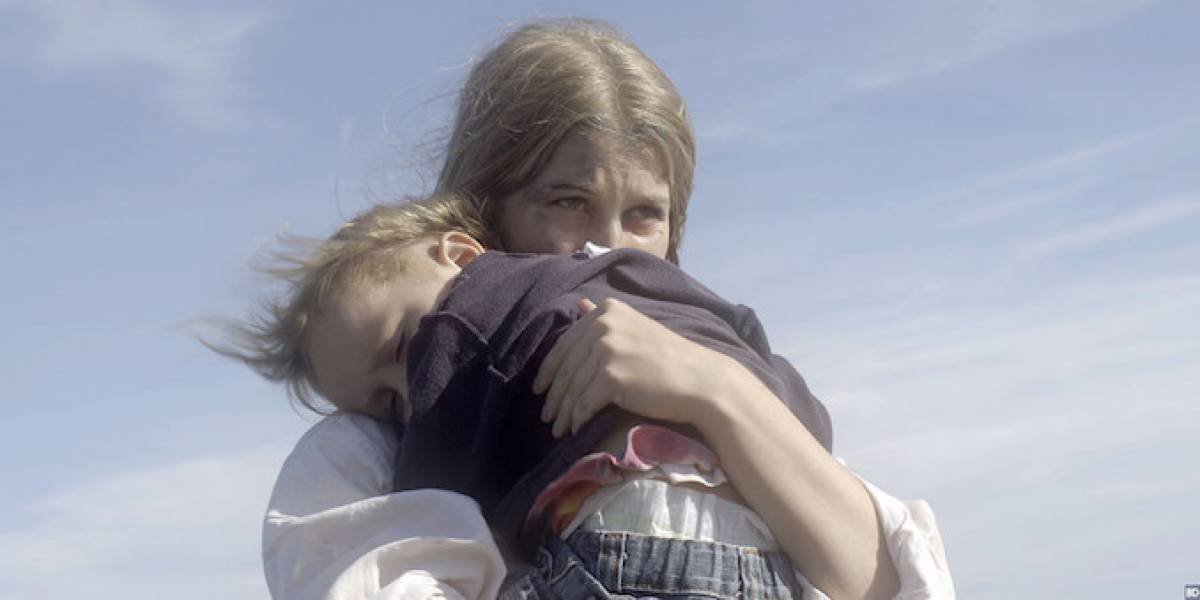Starring Danika Vandersteen
A grieving widow and her toddler son retire to a remote beachfront property on the edge of the Atlantic in this often spellbinding ghost story. If The Crescent doesn’t quite achieve the emotional heft that it needs, Nova Scotia–based writer-director Seth A. Smith certainly compensates with low-budget stylistic chutzpah. The title sequence alone is a masterpiece of downer psychedelia, setting the tone for the film’s acid-gobbling take on the supernatural.
Artist and musician Smith (he also did the fabulously weird score) is less confident when he gears down into a sort of kitchen-sink realism, where The Crescent is hobbled slightly by indifferent lensing and performances that don’t quite connect. Danika Vandersteen takes the lead as Beth, a curiously affectless artist specializing in oil marbling—something that Smith later repurposes, strikingly, as a gateway between worlds. The angular and slightly forbidding house, meanwhile, is a modernist’s wet-dream that seems to sit inside a bleached-out realm all its own.
We know that Beth’s husband has recently died in some sort of accident, and apparently so do the Maritimer locals who tend to gather silently on the beach to stare at the newly occupied home. More unsettling still is neighbour Joseph (Terrance Murray), a barely ambulatory grotesque with a braided beard who introduces himself by inviting young Lowen (Woodrow Graves) to take a walk with him into the sea.
It gives little away to mention that The Crescent apparently concerns itself with the battle for a child’s ever-juicy soul (there’s a long sequence when Mom vanishes and Lowen is left to putter all alone in the danger-filled mansion), or that Graves, in constant peril throughout the film, happens to be Smith’s real son. Horrorheads might be reminded of other liminal resort-side haunts in Carnival of Souls or maybe even 1973’s delicious Messiah of Evil.
But the big payoff here is a climax that switches polarity on the viewer and upends everything we think we know, achieved through a bravura manipulation of sound and image that places The Crescent somewhere in the vicinity of Nic Roeg, Panos Cosmatos, and Belgian arch-stylists Hélène Cattet and Bruno Forzani—albeit on an endearingly Haligonian-indie scale.
Published August, 2018
